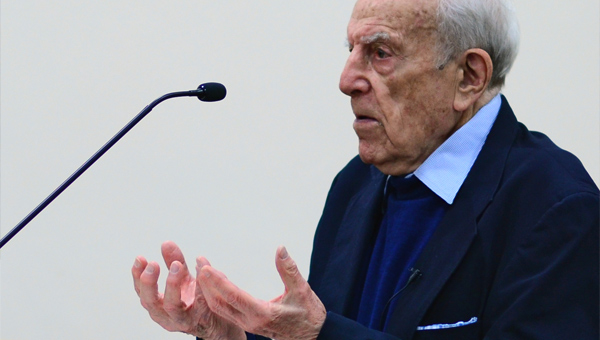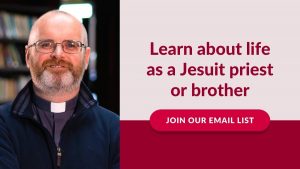Humanity’s divine dignity


“The Council Fathers were struggling to find the right responses among highly complex problems. At times they were confused, at times they felt enlightened. At the end however, they discovered, conceivably once and for all that in the hierarchy of human and Christian values, living persons (imperfect as they may be) have priority over abstract propositions (true as they may be).” So said Professor Ladislas Orsy SJ in his talk marking the second Michael Hurley Memorial Lecture on Thursday 27 May, in the Arrupe Room, Milltown Institute.
The renowned canon lawyer is a staunch advocate of the importance of Vatican II and the need for its full implementation in these times and his chosen topic was a profound reflection on the Vatican II document ‘Dignitatis Humanae’ or the ‘Declaration on Freedom of Religion’. According to Professor Orsy, by recognizing the dignity of human persons, their intelligence and their freedom, then we honour God who made them and endowed them with these divine qualities. After the Council and following the Declaration on Religious freedom “the Church’s position is that the innate dignity of a person is not diminished by his or her honest religious convictions, misconceived as they may be”.
He holds that a person’s conscience is the place where they encounter God and ”they have a right to converse with their Creator within this sacred space of their conscience’. And in his talk he asserted that ‘the Council has given priority to love that lifts up a person over the enforcement of truth that may crush a person.” And he added, “By stating that rights belong to persons not to propositions, the Council disavowed the Inquisition. Forever.”
Addressing the vexed question of a person who is of the right disposition but mistaken in his judgement of conscience Fr Orsy said that such a person obviously needs to be better informed and gently shown the truth. But he added the important caveat; “Let the truth work on his mind; his integrity must not be violated by external force or imposition. His God-given divine dignity remains intact (yes!) and must be honoured notwithstanding his error”.
Not surprisingly after such a challenging talk a lively question and answer session followed producing a lovely insight from the Georgetown University professor into the Gospel command, “Be perfect as your Heavenly father is perfect”. You can hear what he said by watching both his talk and the Q&A session on the Irish Jesuit’s Vimeo account.


